Drawing in the margins: Altaf's sketches and diariesThe Editorial Team August 01, 2023 Altaf Mohamedi (1942—2005) was one of the most important political voices in post-independent modern Indian art. He pushed against the complacencies of cultural nation-building that ignored the contemporary realities of the marginalised working classes in India, especially Mumbai, where he hailed from. Educated at London’s Central Saint Martins in the 1960s, he also started keeping a regular diary since then—which opens up the artist’s inner world that was full of doubts, anxieties and despair, while also reflecting a wide variety of influences that he gathered from his political activism, readings and incessant sketches. This article highlights some selections from Altaf’s diaries, relating them to the wealth of sketches that would be made in these pages as well. |
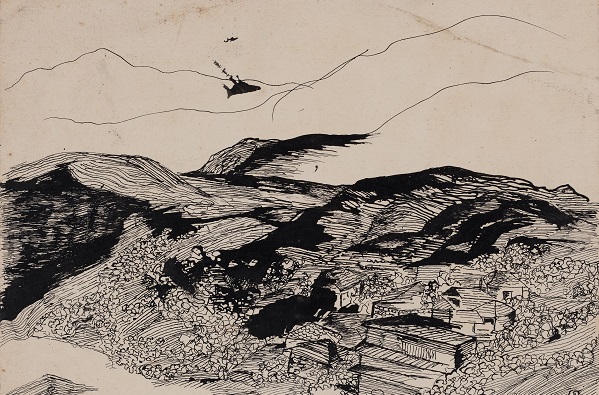
|
Drawing from the Greek word skhedios, meaning ‘to extemporize’, the sketch presents an interiorized, psychological landscape against classical painting’s heroic, externalized construction of the painted tableau. For many artists, sketching and drawing suggest initial explorations for capturing moods, relations and subjectivities that can be expanded through later applications of paint and texture. This has led critics to compare preparatory sketches and drawings made by artists to a ‘private language’ that transports viewers to a different space within the artist’s psyche that is usually invisible in their more public, ‘finished’ or exhibited works. Writing for a special issue of the journal Master Drawings focusing on mid-century drawings by American modernists, John Elderfield wrote, ‘By 1956, the critic R. P. Blackmur was writing that the modern poet "found himself seeking a private language and has grown proud of it." A similar proud publication of private language characterizes the mid-century artists represented here, and its syntax was that of drawing in reciprocation with painting.’ The comparison with a poet’s process is apt for an artist like Altaf who read widely, including poets like Rainer Maria Rilke, frequently quoting from the latter’s work in his own diaries and sketches. Paul Gauguin’s travel journal, Noa Noa (1893-94), where the artist recorded his impressions of Tahiti, is also referenced by Altaf frequently in his own diaries, setting up a dialogue across time and space between two radical artists who rejected the materialistic world they saw around them. |
|
|
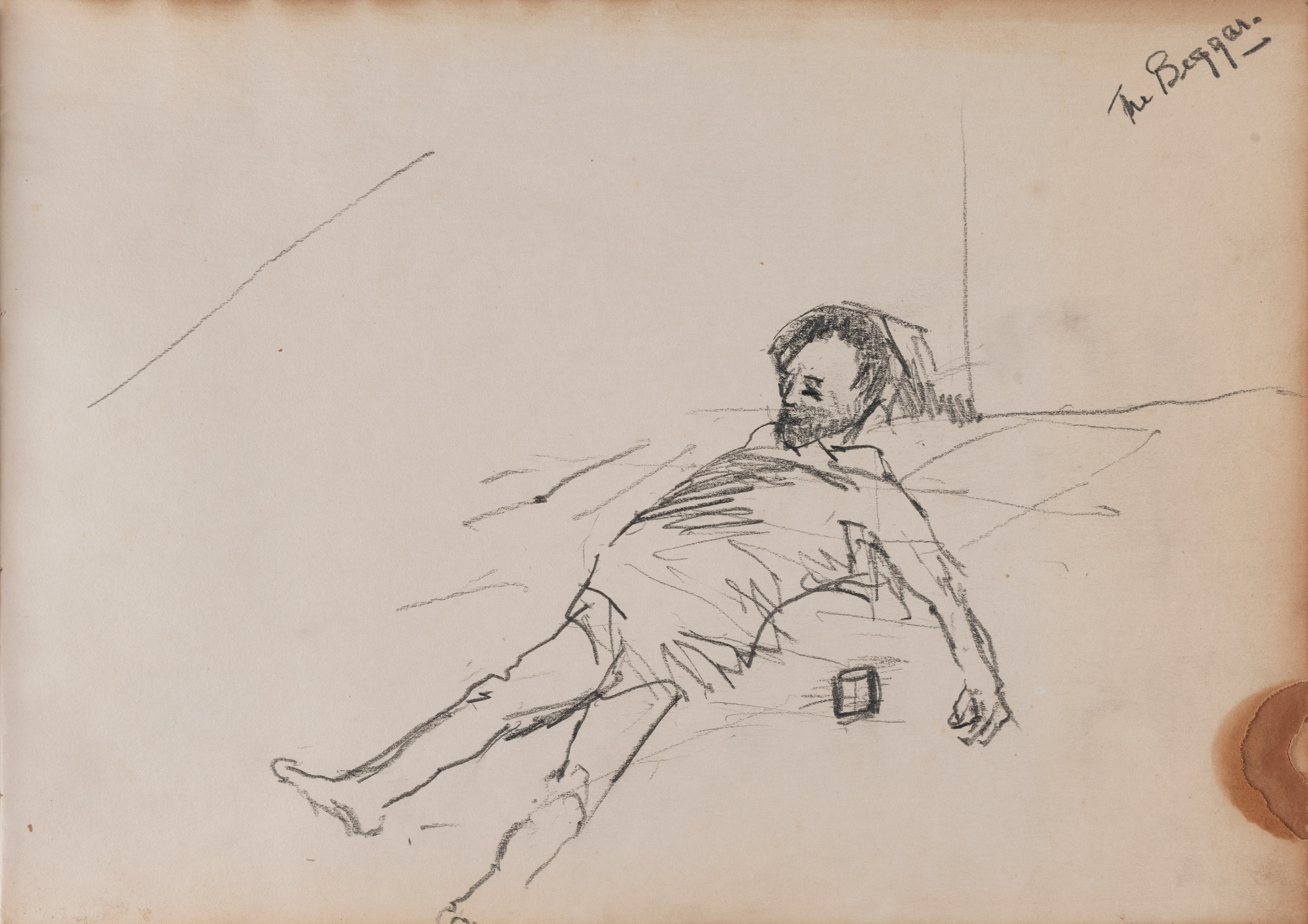
Altaf
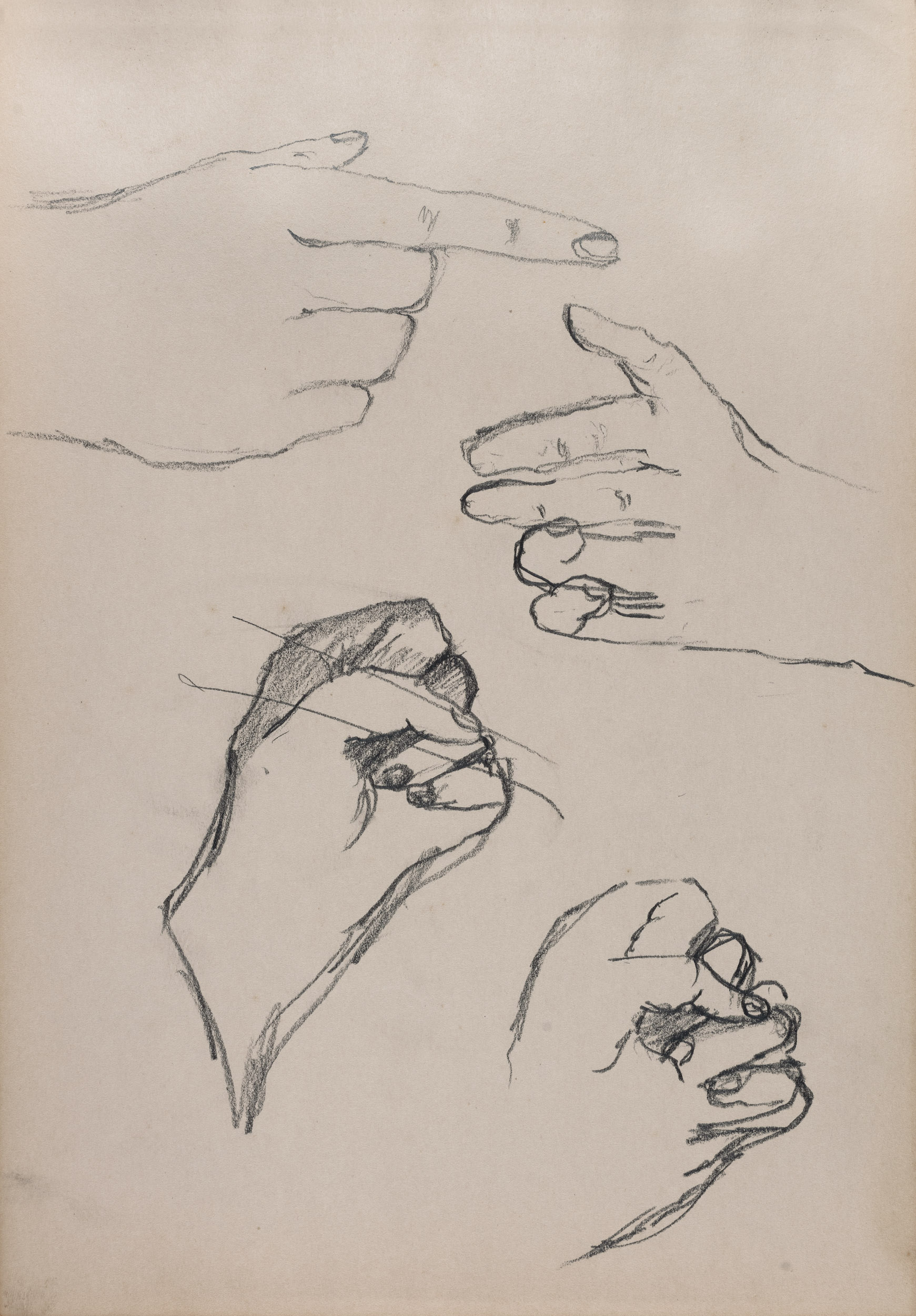
Altaf
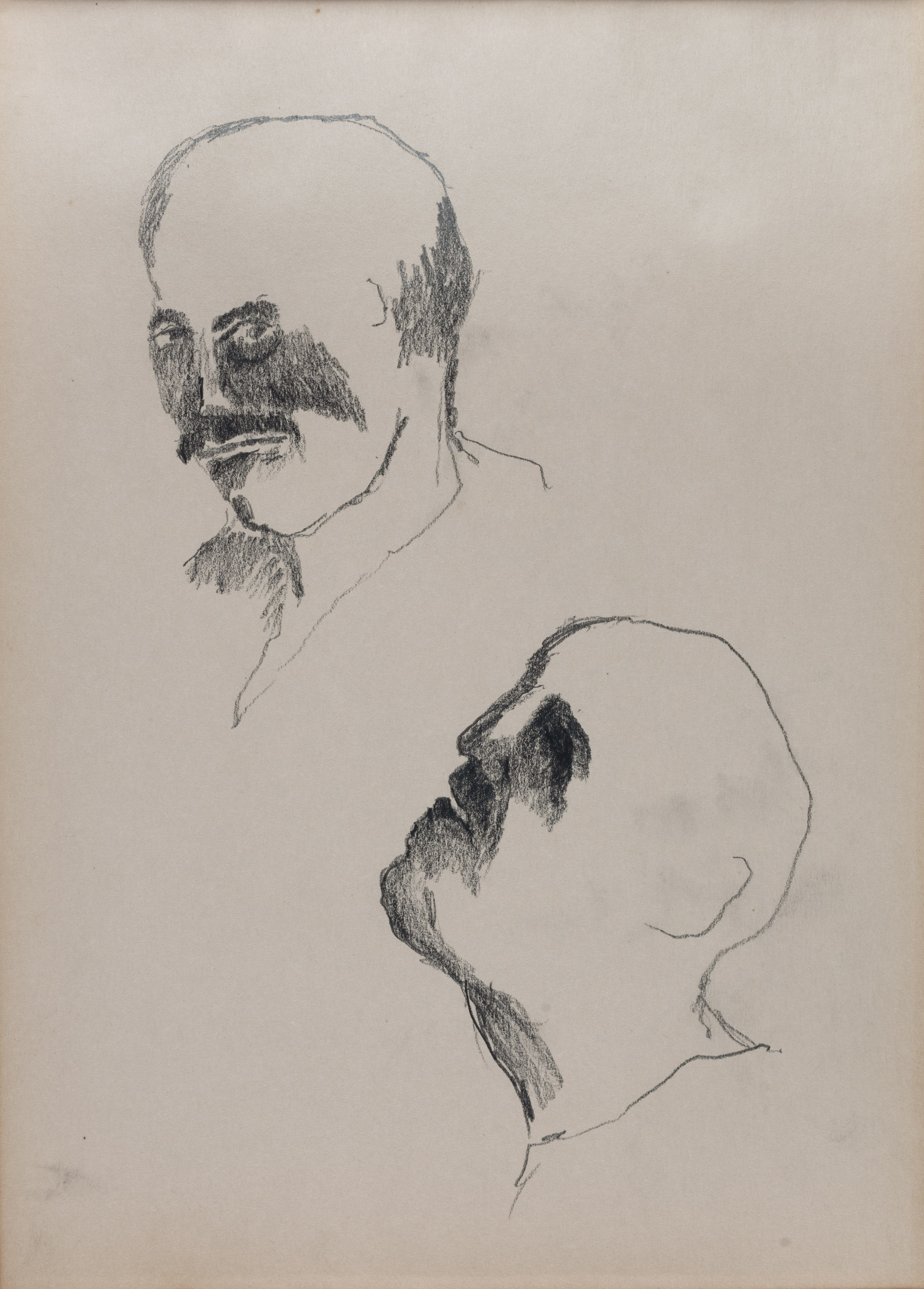
Altaf
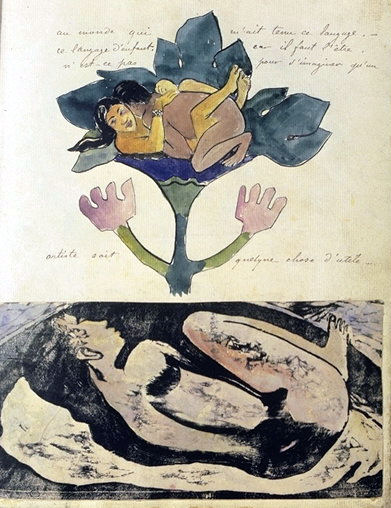
Paul Gauguin
Embracing couple and woman folded in on herself, surrounded by a handwritten text, Album Noa Noa, folio 42 recto
Image courtesy: Wikimedia Commons
24th May 1963 – 23rd March 1964, London24th May
I continue to read Gauguin’s Noa Noa. It holds for me a terrific satisfaction. Noa Noa breathes of the soft breeze—the coolness of the place—the man and all he sacrificed for this enchanted island. An island I would exile myself to. But alas! The world is too spoilt by its riches—mentally and spiritually. Had not Gauguin truly found a paradise on earth? Would he have lost himself without it? That’s an abstract question, but well worth reflecting upon. But then, was it not here that he really found his genius? Was it not in Tahiti that he produced most of his masterpieces? |
|
3rd August, 1963
How wonderful the colour ‘black’. It is my saviour, many a times has it heroically come to my rescue. Black, the colour of strength. It is to other colours like a pair of crutches, helping them on their feet, making them twice as effective as they would otherwise be. No other painter has used black so effectively as Georges Rouault. He had full command on it and black, like an obedient slave, slaved gloriously. |
|
|
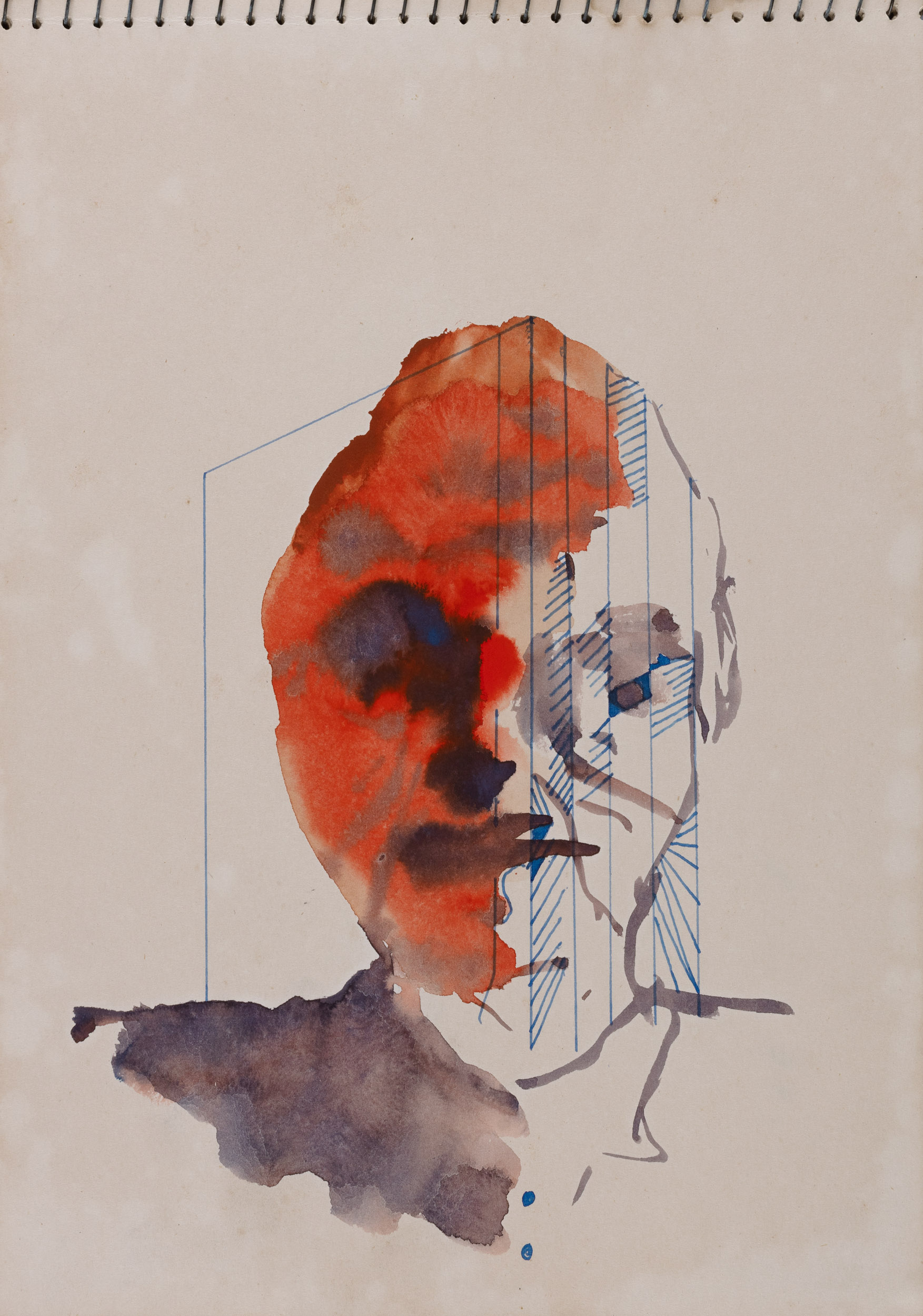
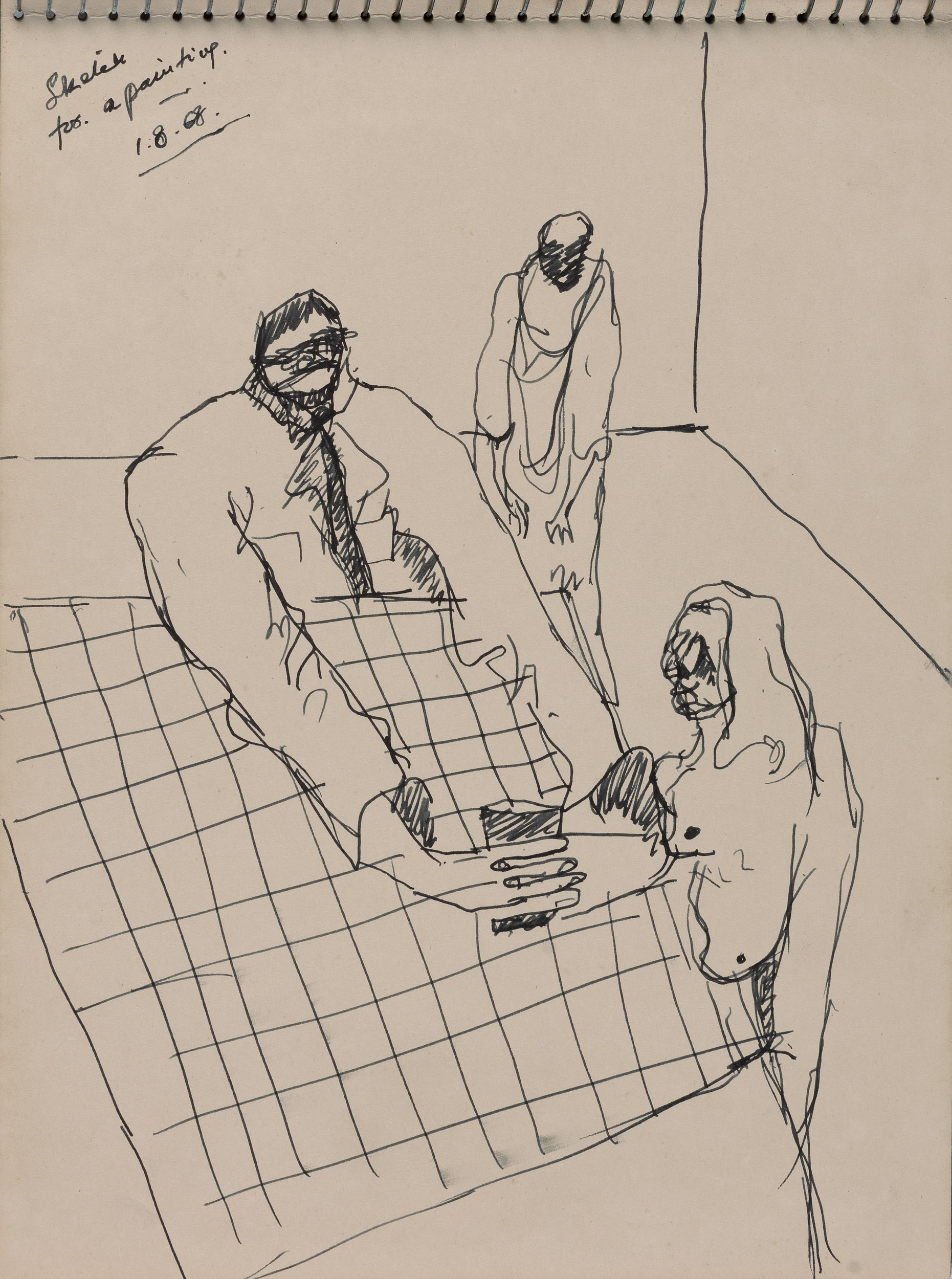
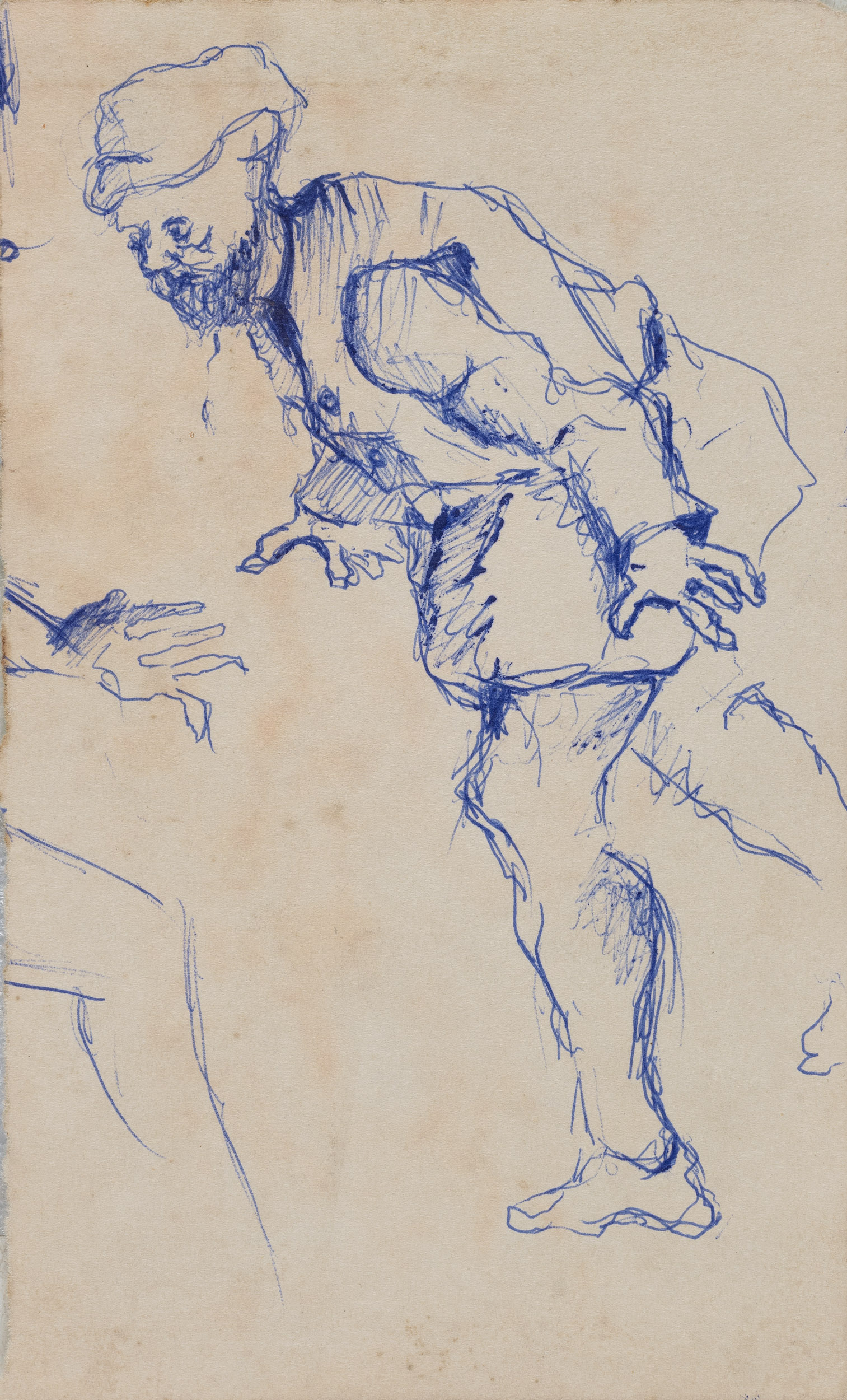
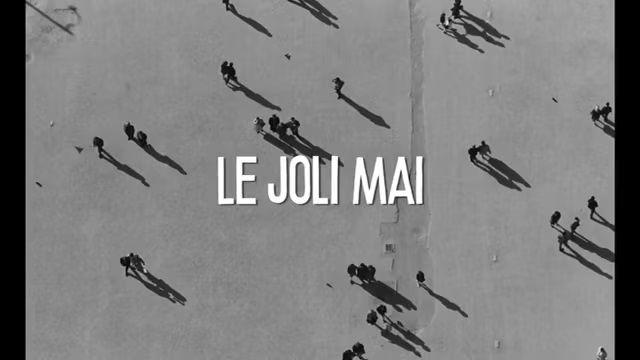
15th March
How I enjoy such films but would I, if I were caught off-balance by one such roving, private-eye camera? How easy for me as one in an audience to ridicule those people who have already been caught quite off balance. How they stutter and stammer, desperately trying to make sense of their words, to make a dignified escape from the trap they have just fallen into. Of course, there are many who enjoy this—but what of those who do not? In any case the bare truth is that I myself enjoy watching them. |
|
|
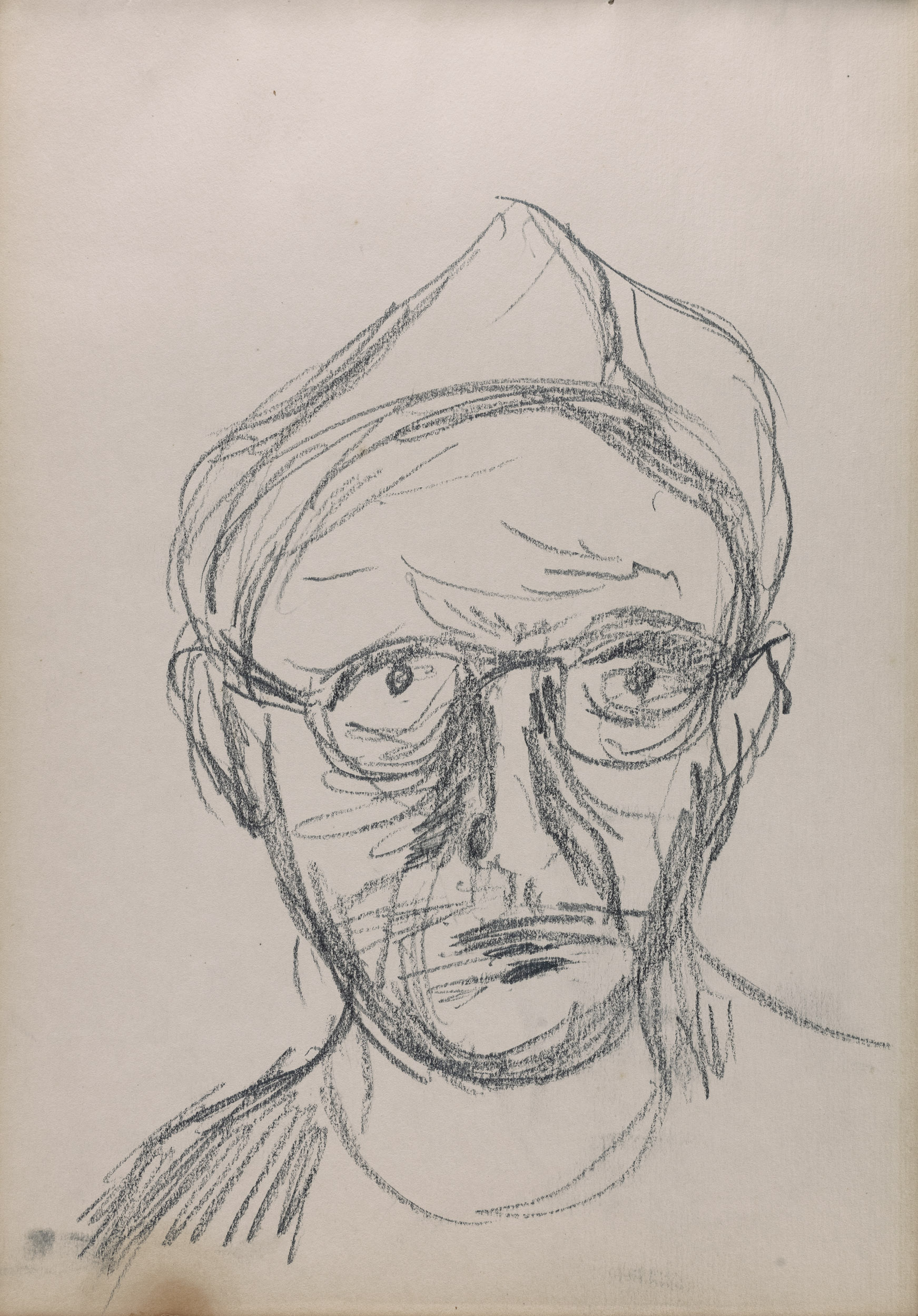
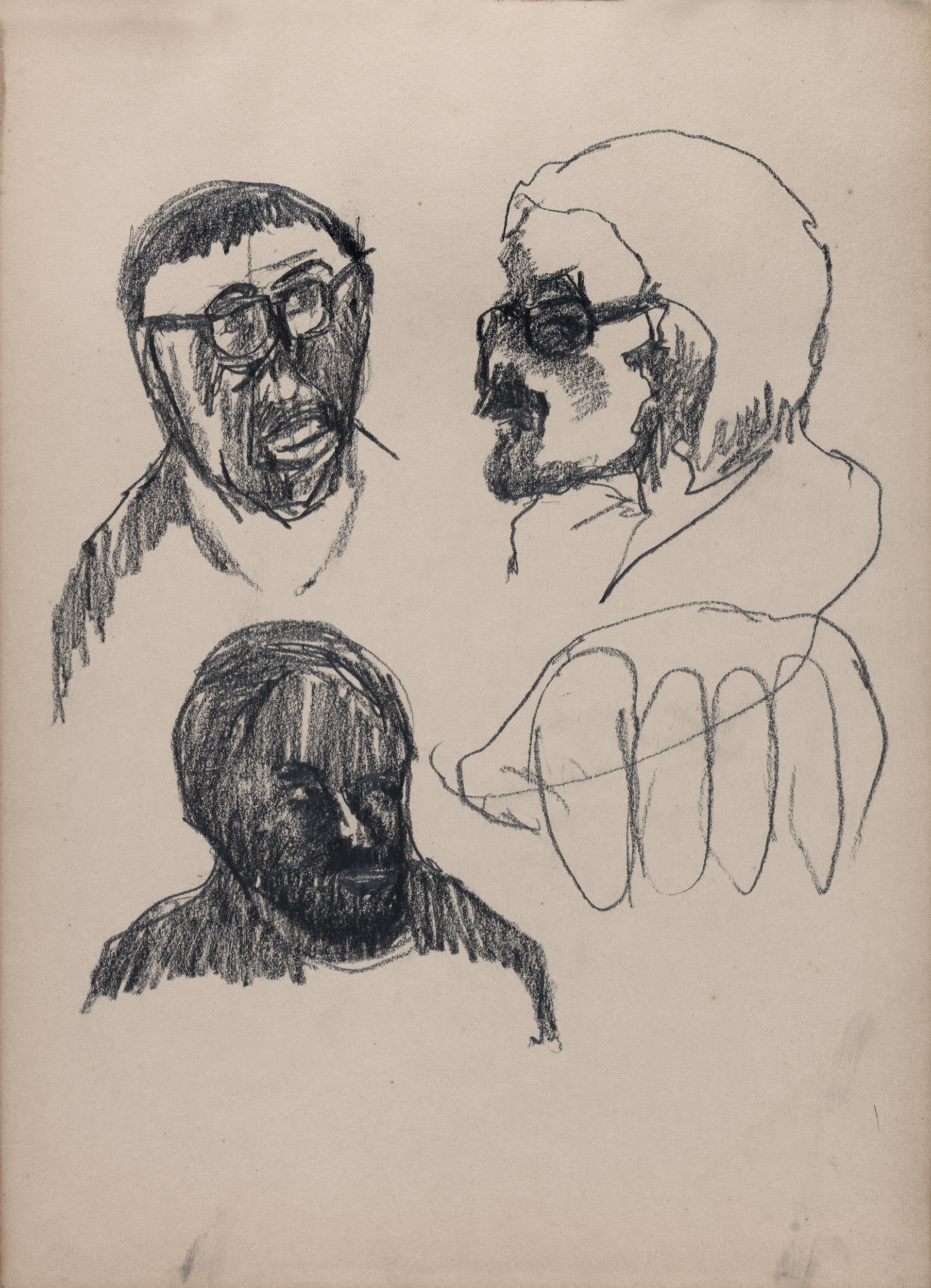
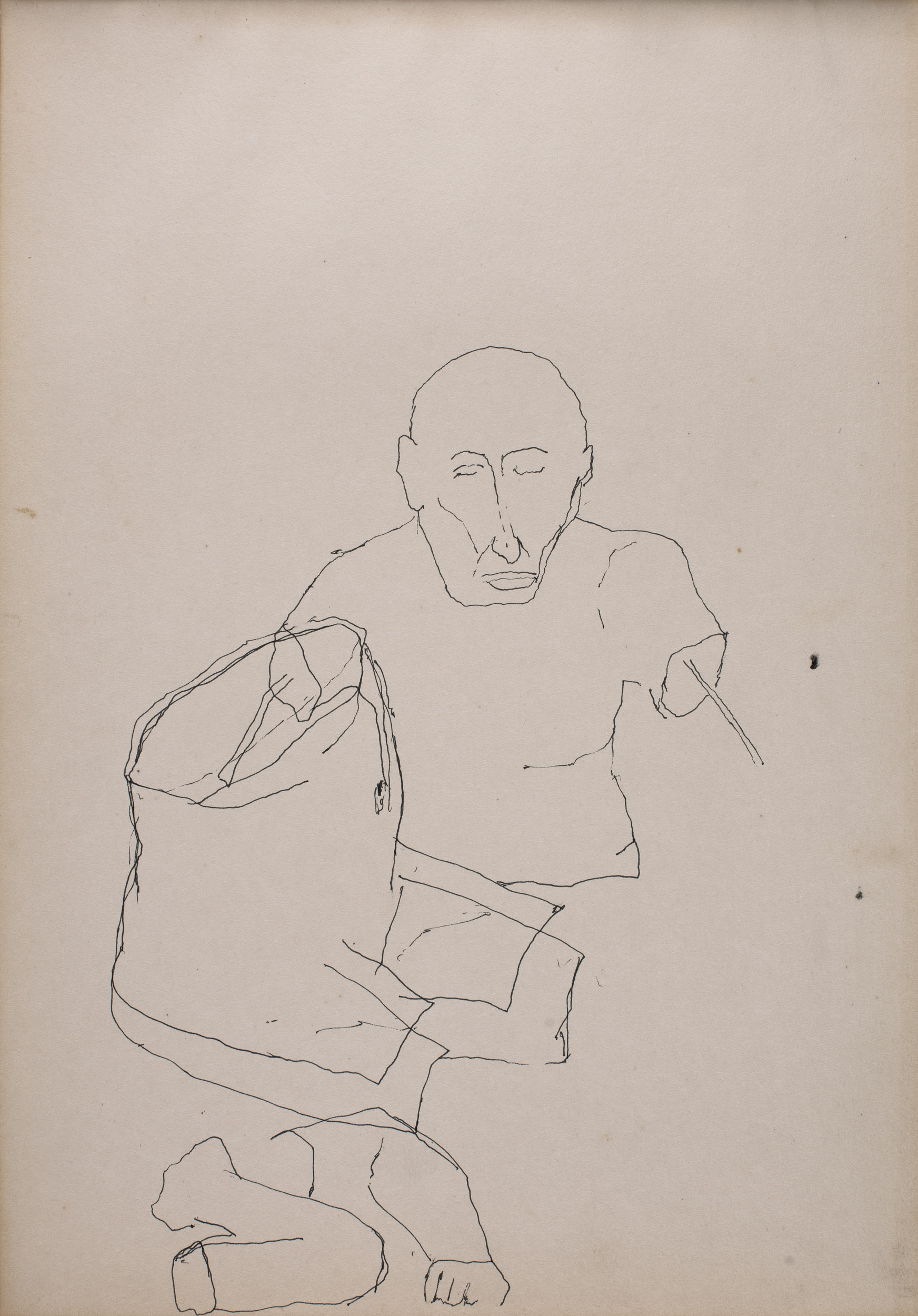
24th March – 22nd May 1964, London24 March
25 March
|
|
...at the moment it is neither Elvis nor Frank who are leading the jackpot—it is these four English boys ‘The Beatles’. These chaps, though I confess, I do not like them very much, yet must admit, are really going places. I just heard on the radio that in the U.S.A. the four top songs of the year are by these chaps. Yes, fellows… whatever I think of you I must tip my hat at your unbelievable success. I really cannot understand this—they are so ordinary and childish, their sense of humour is almost to the point of stupidity—their singing, so ordinary, their personality—putting four together adds to ½ a Frank and a ¾ Elvis. But yet! ... well, this good world of ours is full of surprises, and if I may say so, is all the better for it too. |
|
|
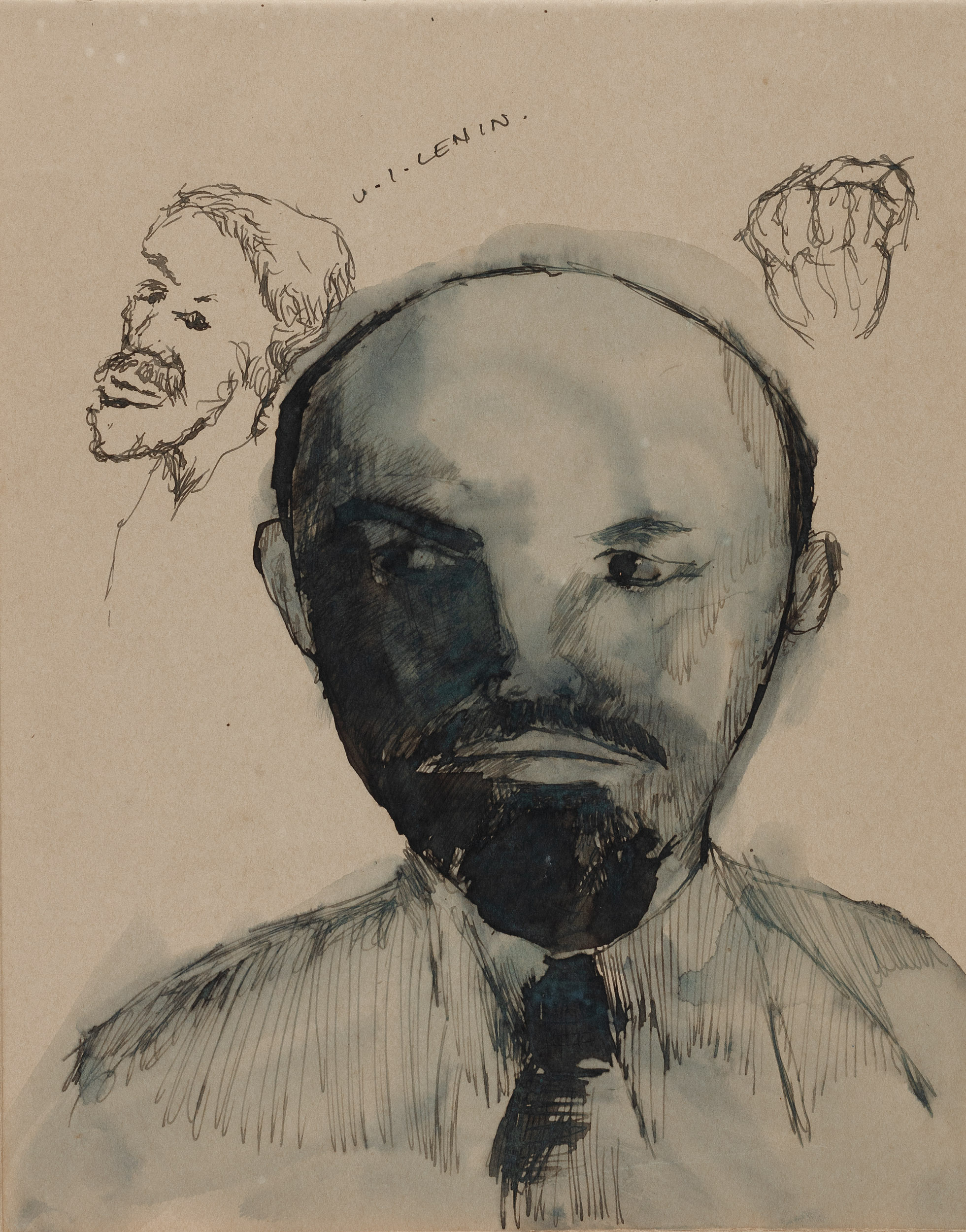
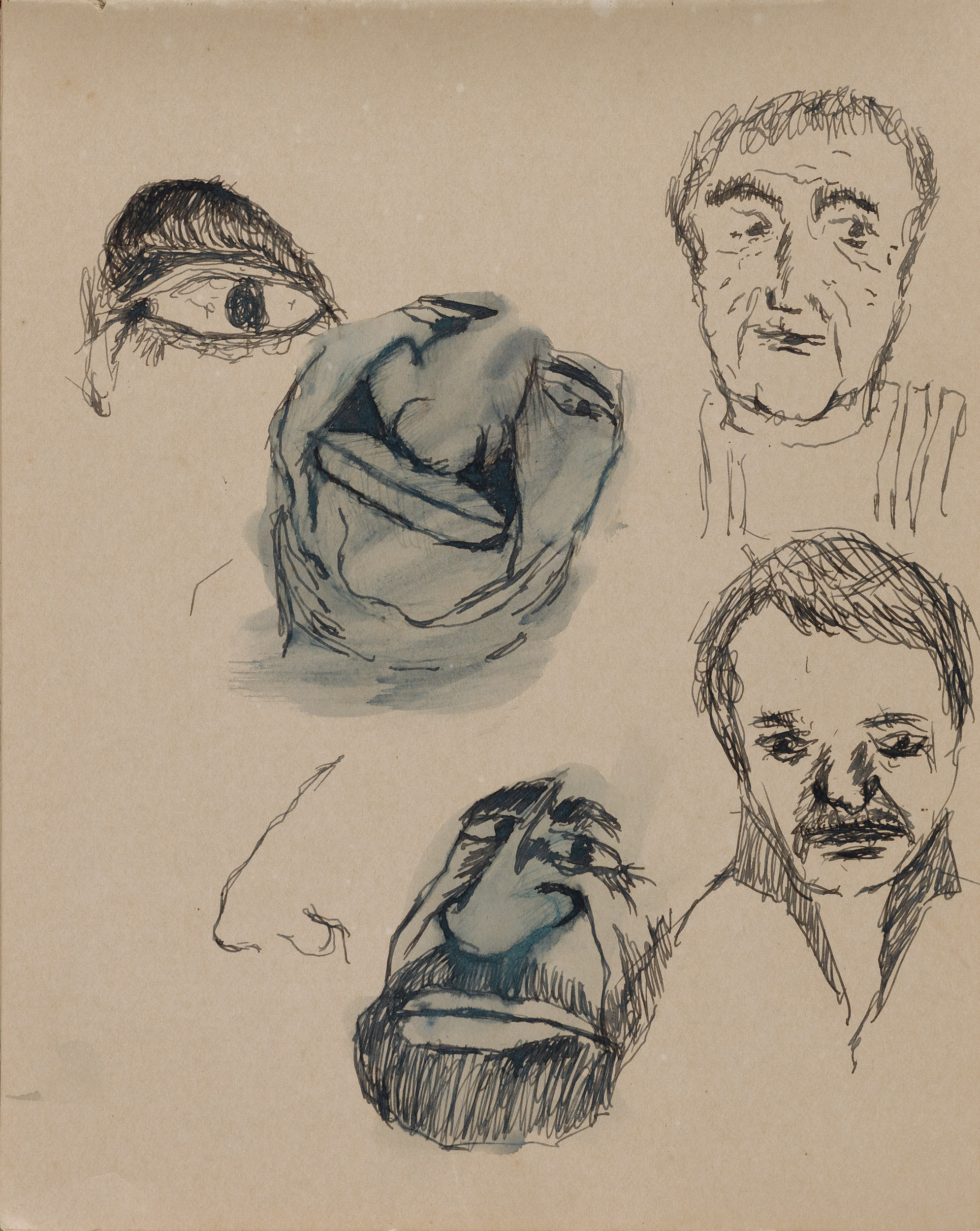
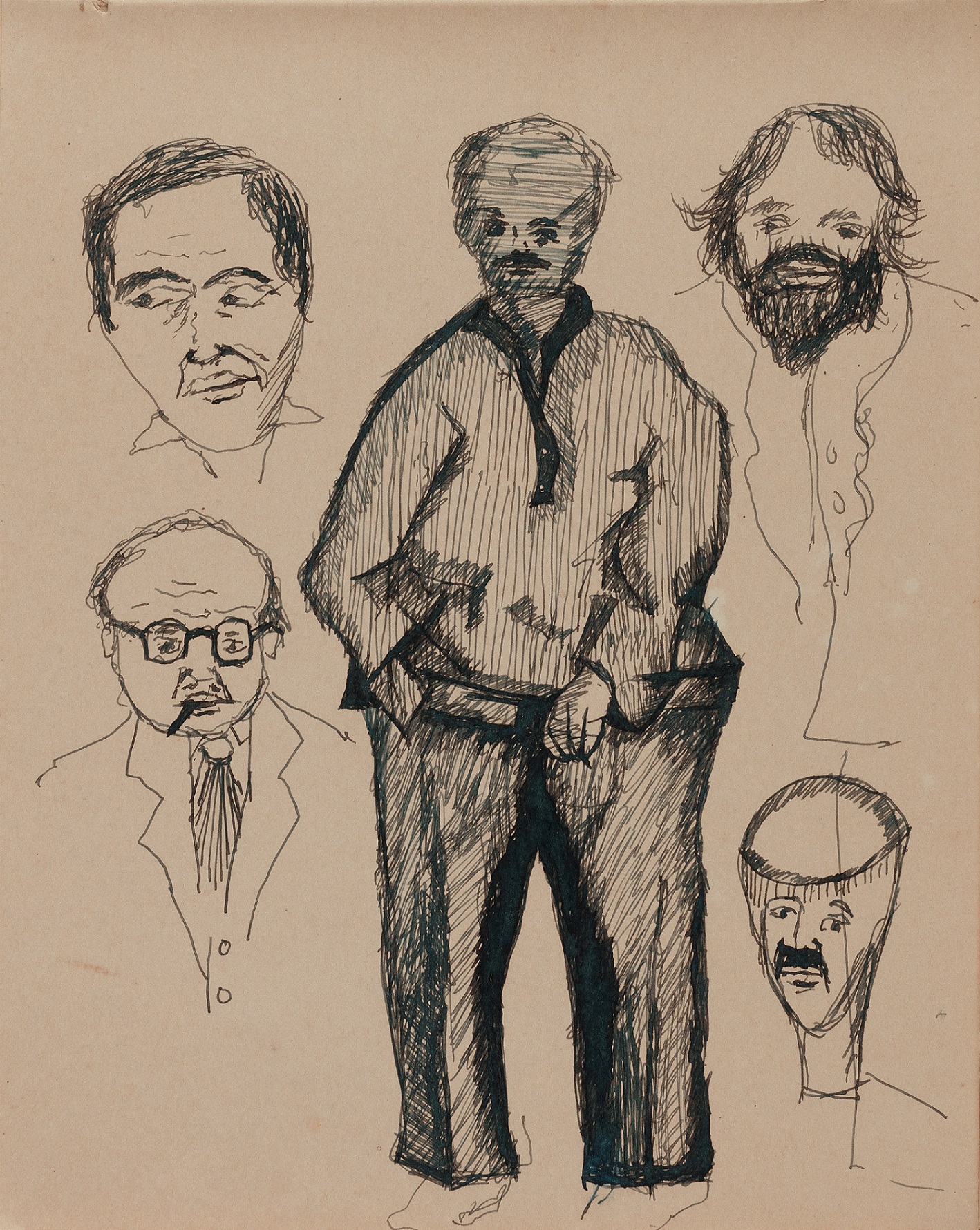
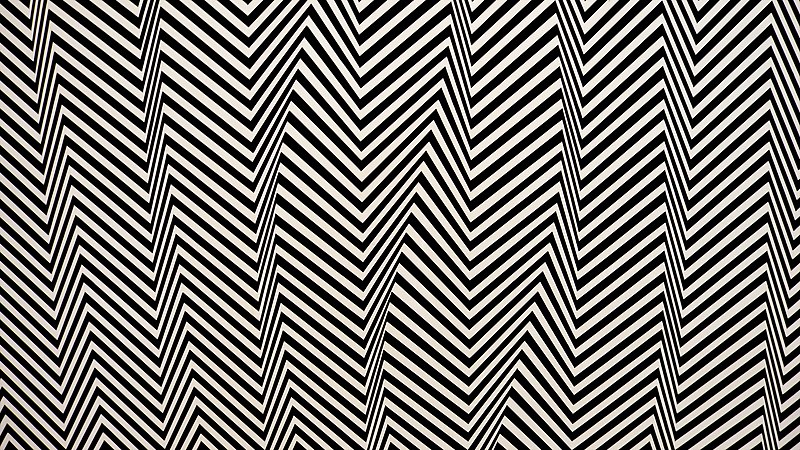
Bridget Riley
Descending
1965
Image courtesy: Wikimedia Commons
1st April
Next, I went to the bookstall, which mainly deals with communism and there bought, Selected Writings of Marx and The Marxists and lastly went to Collets from where I bought The Literary Critics, A Short History of French Literature and A Short History of English Literature. When I came back to my room, my hands full and happy, it was almost five in the evening. |
|
|
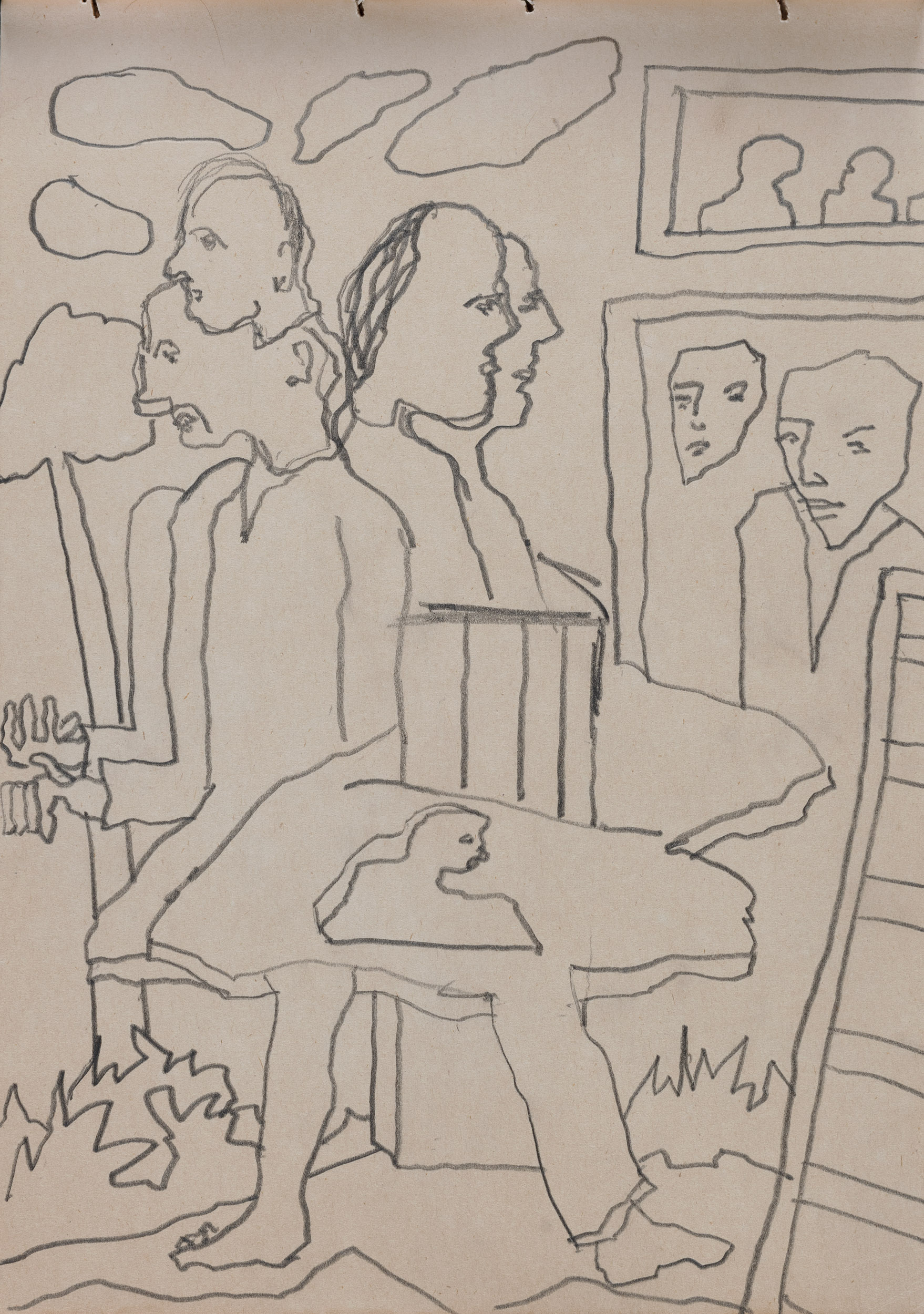
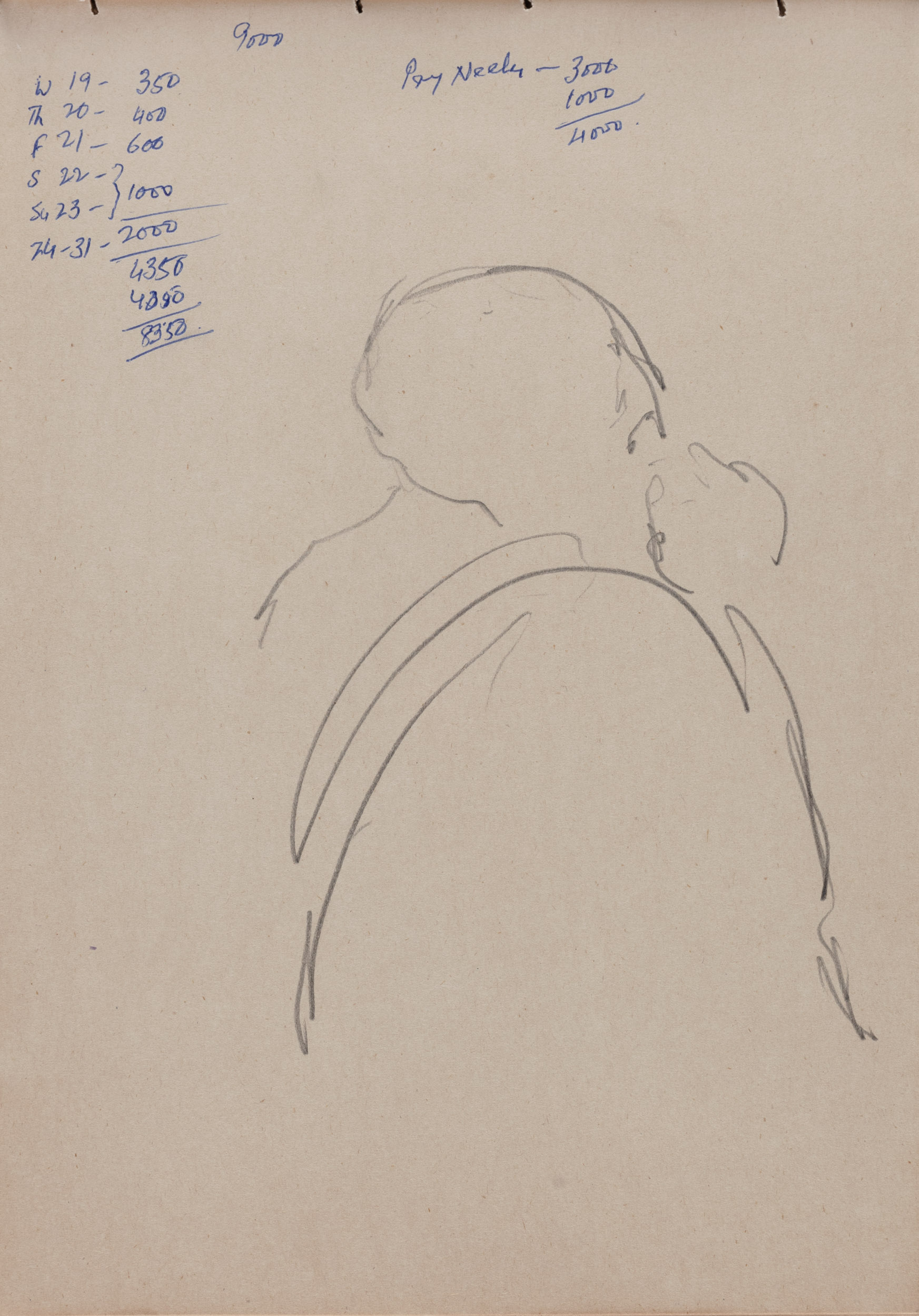
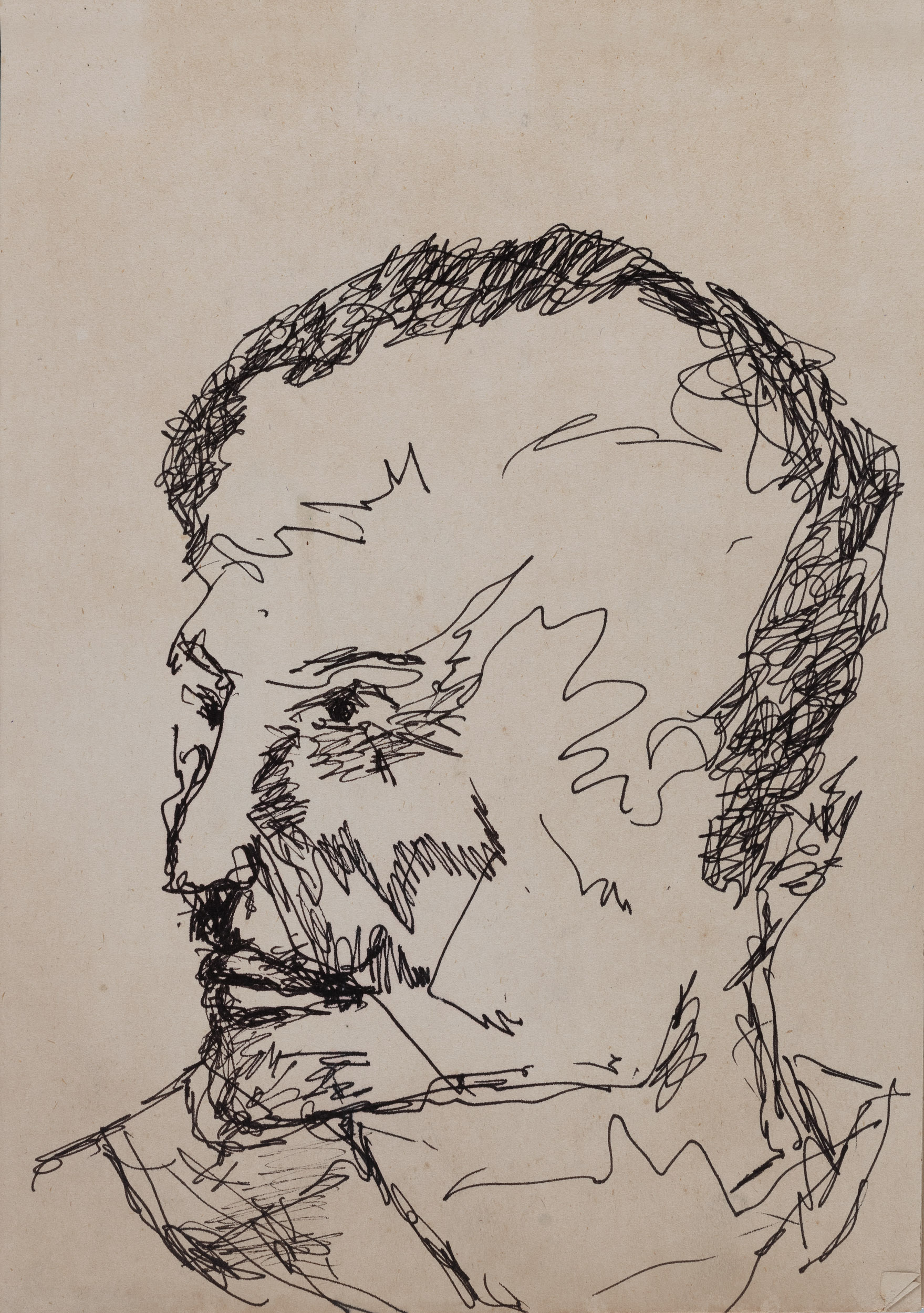
22nd January 1966 – 17th January 1967 London / Europe22nd January
4th February
|
|
|
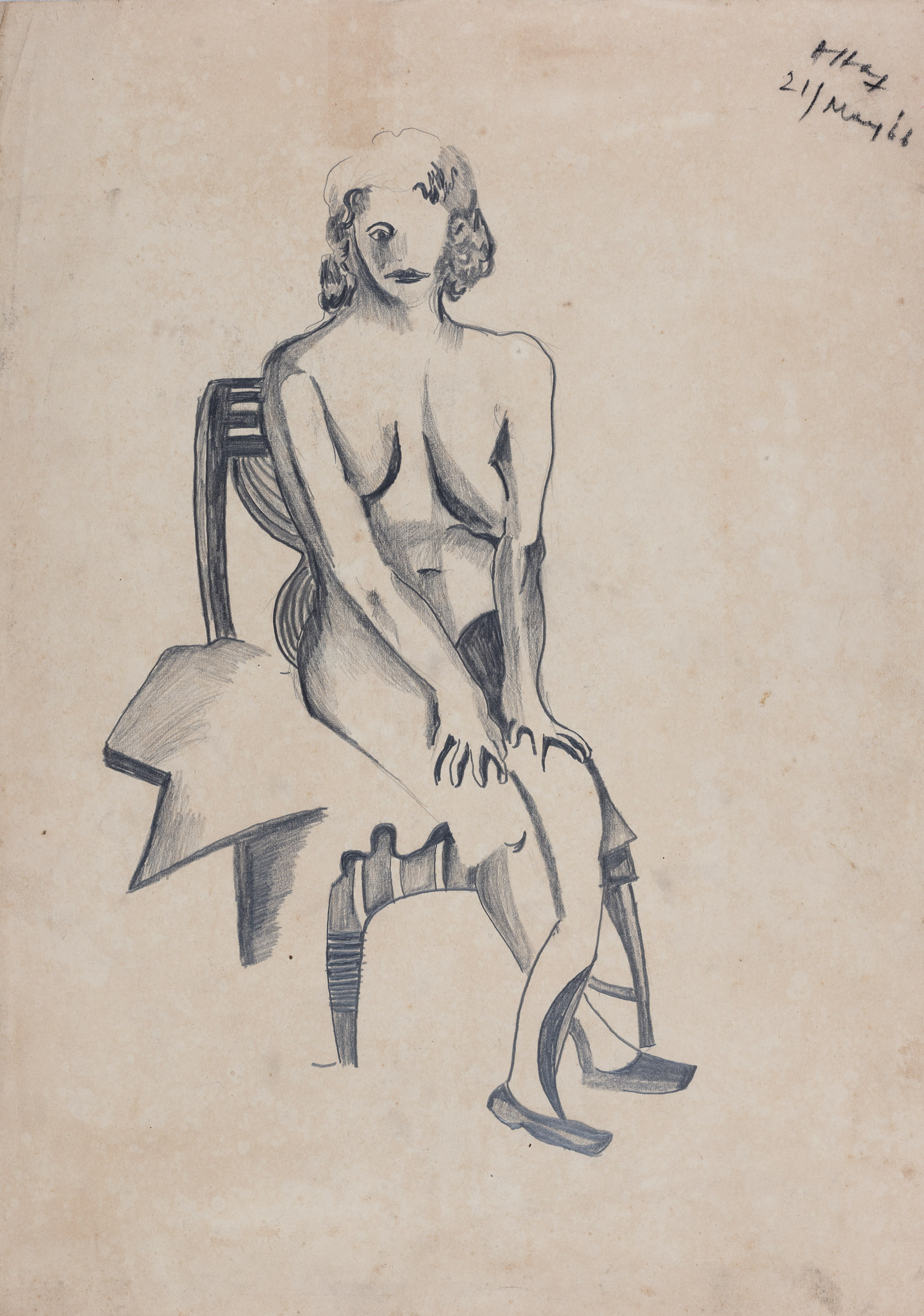
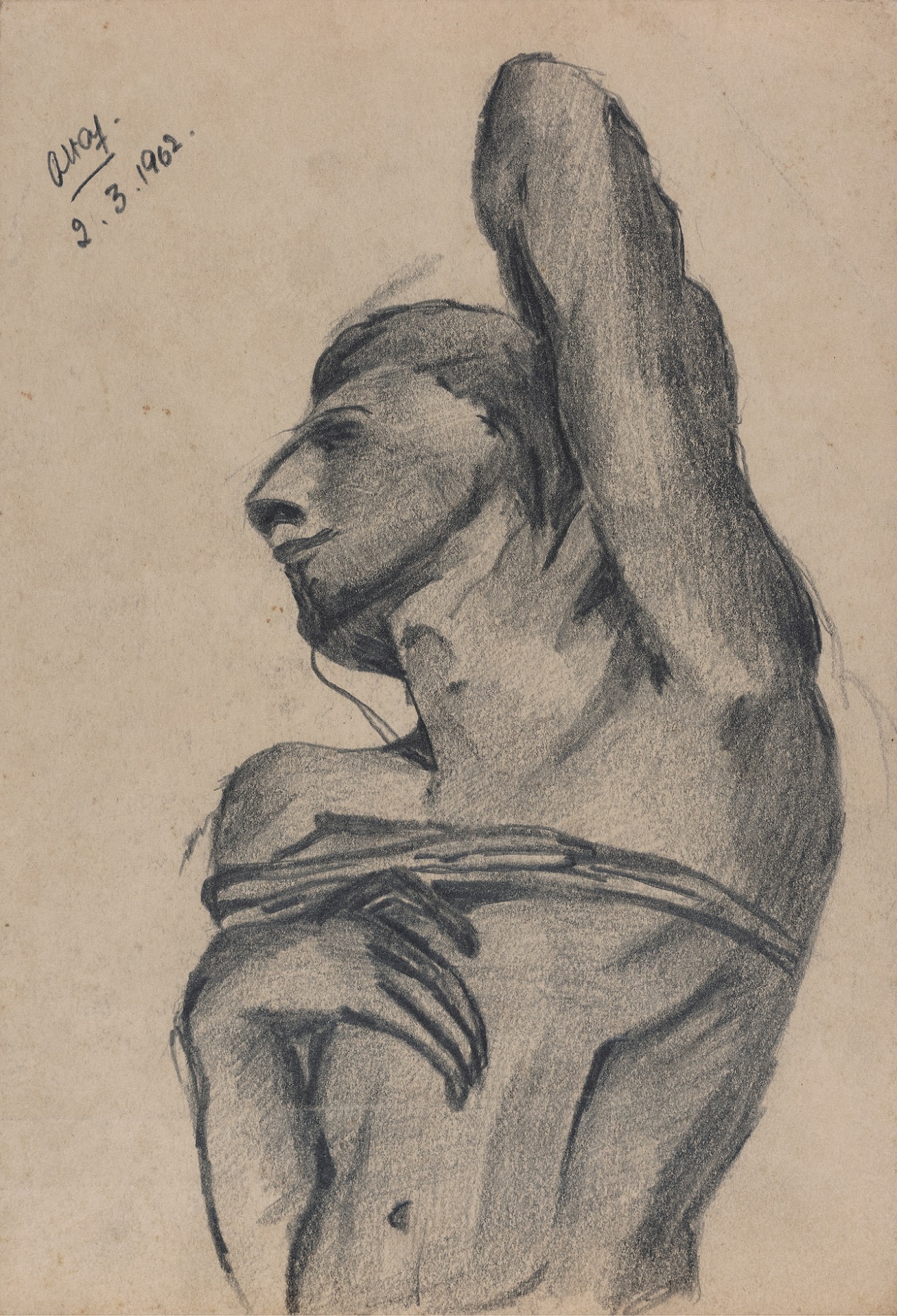
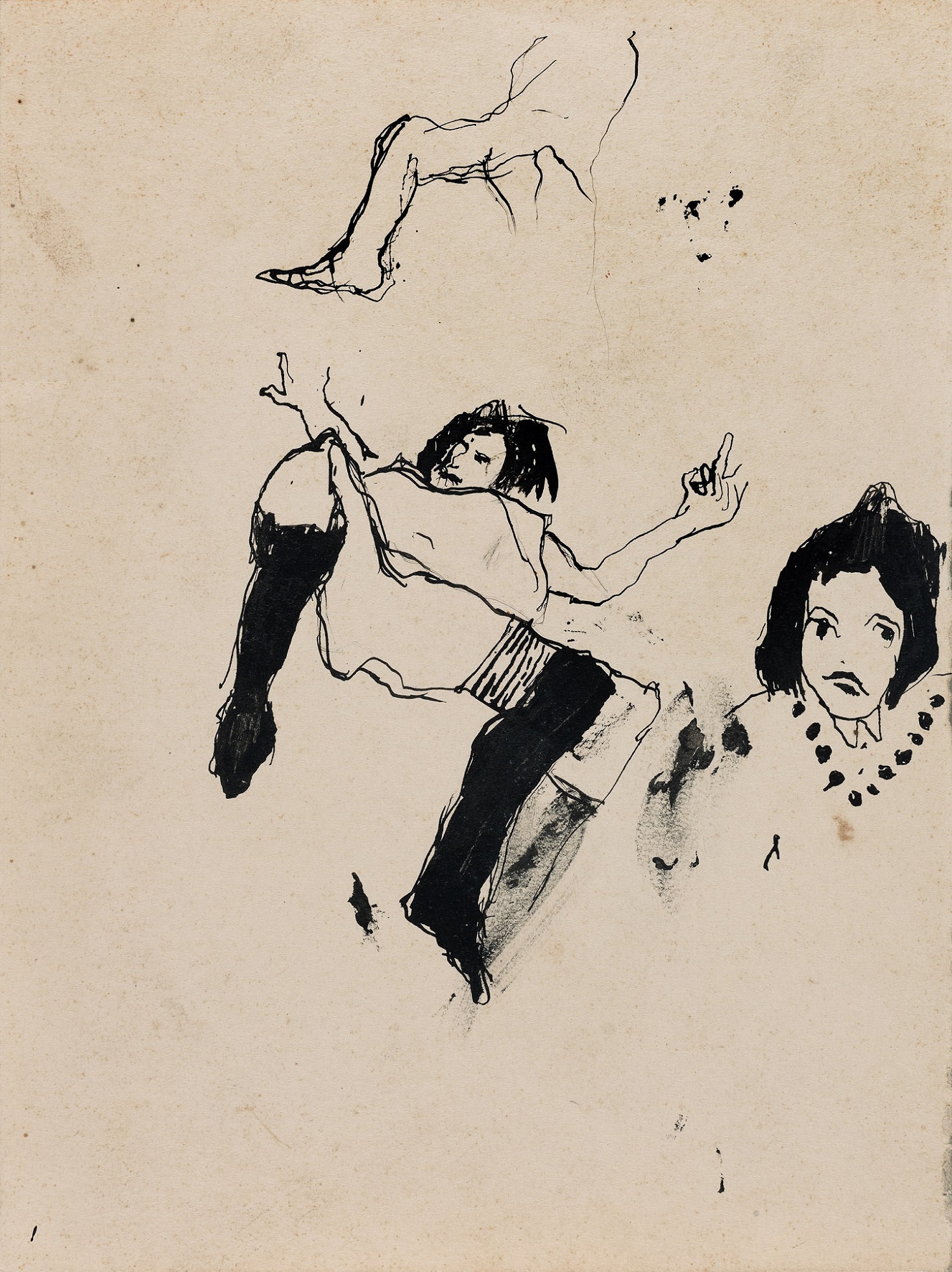
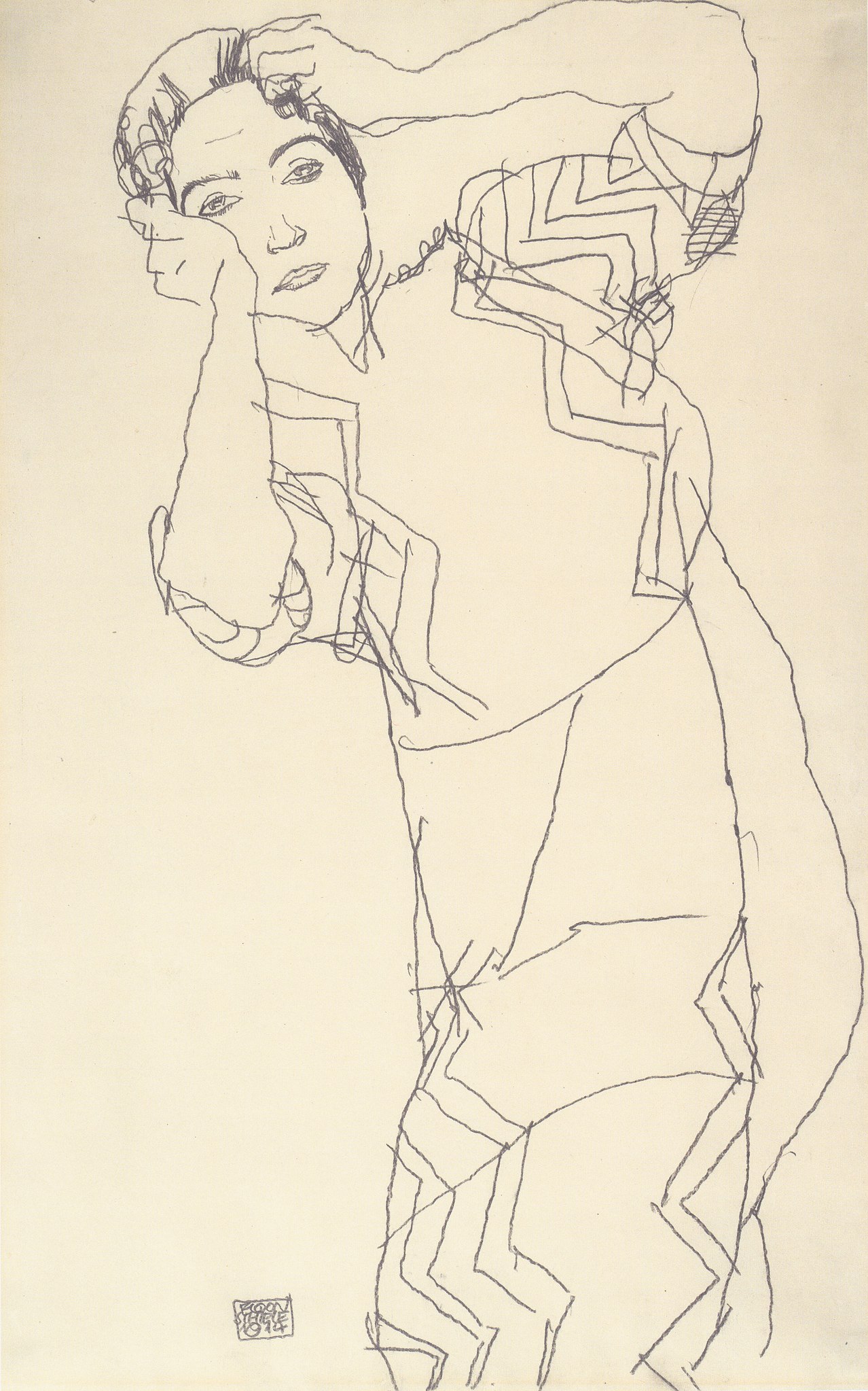
Egon Schiele
Image courtesy: Wikimedia Commons
10 June 1964
13 October
|
|
3rd May, 1973:
18th May:
|
|
|


